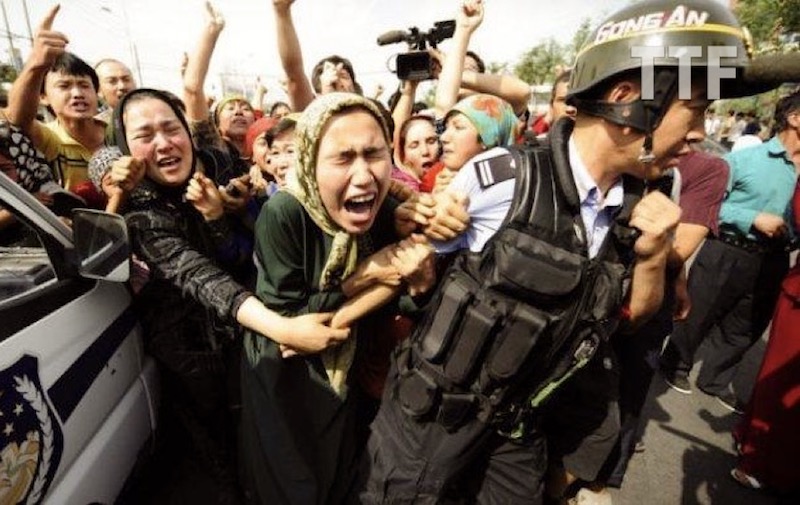
Perlis Mufti Mohd Asri bin Zainul Abidin has called upon Muslim countries to initiate a boycott of Chinese products to protest the detention of ethnic Uighurs, at least a million of whom are reportedly held against their will in China’s Xinjiang province.
The Organisation of Islamic Cooperation (OIC) received a lot of flak from Uighur rights advocates who criticised the majority of member states for their “silence” on the issue.
In May, a top US defence official in charge of Asia, Randall Schriver, said the UN estimate of a million detainees was “likely closer to three million citizens” – representing almost a third of the total 10 million Uighur population.
Activists and human rights groups have accused China of trying to erase Uighur language, culture and religion, forcing them to give up Muslim religious traditions and beliefs, such as the use of veil among women and the wearing of facial hair among men. Muslims have also been reportedly banned from fasting during Ramadan.

SUBANG JAYA: Perlis Mufti Mohd Asri bin Zainul Abidin has called upon Muslim countries to initiate a boycott of Chinese products to protest the detention of ethnic Uighurs, at least a million of whom are reportedly held against their will in China’s Xinjiang province.
Accordin to the Al Jazeera news network, Asri, who is also a Salafi preacher, writer, lecturer and Islamic consultant, said political and religious leaders from the Muslim world should exert more economic and diplomatic pressure on Beijing for its treatment of the minority Muslim group living in its westernmost province.
“We need to go to the extent of boycotting China’s products. They know the strength of our purchasing power,” Mohd Asri told Al Jazeera on the sidelines of a summit of Muslim-majority countries in the Malaysian capital, Kuala Lumpur.
“The decision should be taken at the highest level of Muslim countries and the ulama [religious scholars and guardians]” to address the Uighur issue, said Mohd Asri, who earlier told summit participants that the almost two billion Muslims should flex their economic muscles to influence policies worldwide.
“We should do something, because they [Uighurs] are our brothers and sisters,” he added.
The Organisation of Islamic Cooperation (OIC) received a lot of flak from Uighur rights advocates who criticised the majority of member states for their “silence” on the issue.
In July, more than 20 countries voted for the first time on a resolution before the United Nations Human Rights Council calling for an end to the mass detentions of Uighurs in Xinjiang.
However, 14 OIC member states joined 23 other countries in siding with China by praising its “remarkable achievements in the field of human rights”.
In May, a top US defence official in charge of Asia, Randall Schriver, said the UN estimate of a million detainees was “likely closer to three million citizens” – representing almost a third of the total 10 million Uighur population.
Activists and human rights groups have accused China of trying to erase Uighur language, culture and religion, forcing them to give up Muslim religious traditions and beliefs, such as the use of veil among women and the wearing of facial hair among men. Muslims have also been reportedly banned from fasting during Ramadan.
China has denied that Uighurs are being held against their will. Beijing has described the facilities as “training centres” or “re-education” camps aimed at countering the “terrorist threat” and “extremism” in Xinjiang. Beijing also denies any mistreatment of Uighurs.
Muhamed Ljevakovic, a speaker at the Kuala Lumpur summit from Bosnia Herzegovina, said most of the participating countries are “friends of China”, so there is “no chance” to confront Beijing more forcefully on the Uighur issue.
“Friends are supposed to tell each other the truth, and friends are supposed to tell them that what is going on right now is not good for China, and of course not good for the Uighurs. But people are afraid to speak their minds,” he told Al Jazeera.
“That is why we did not receive a full resolution here because people are trying to diplomatically say nothing.”
THE THRID FORCE



